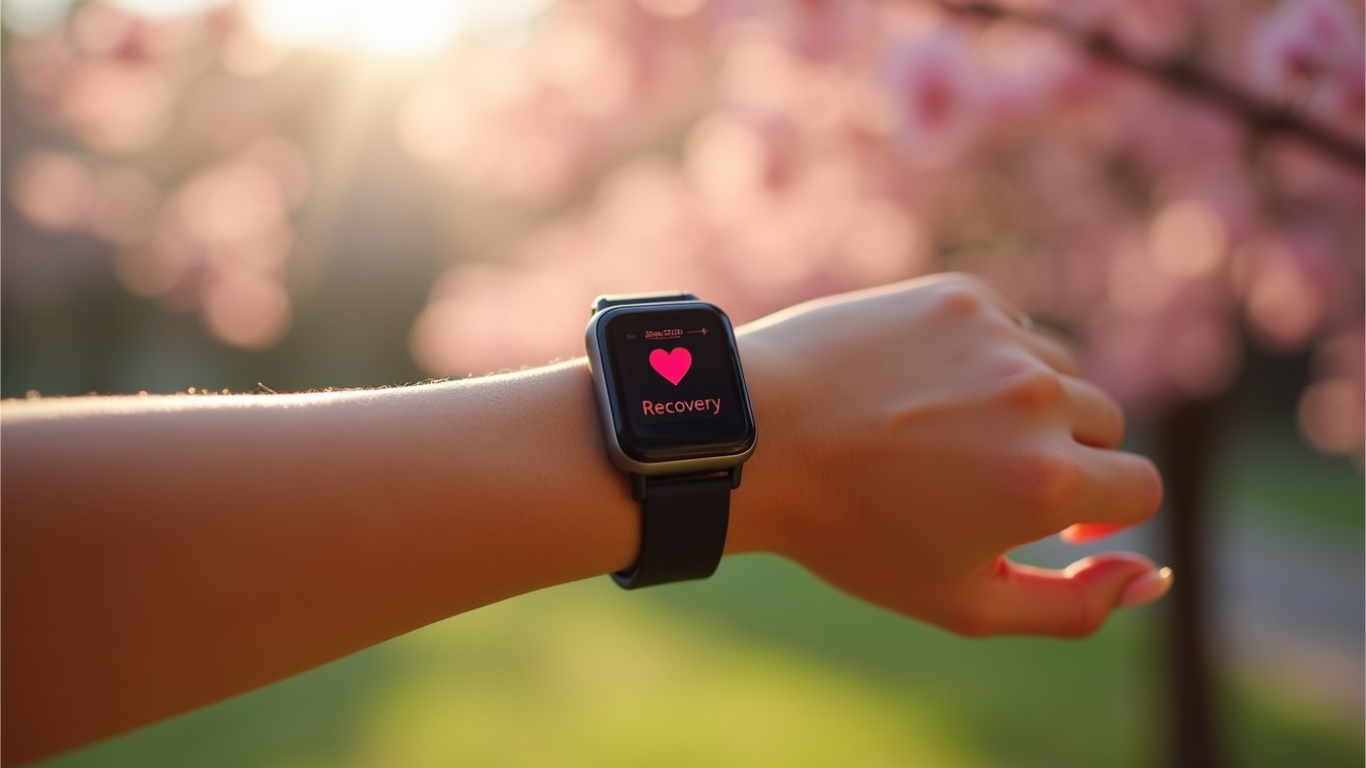Understanding the Circadian Rhythm for a Better Night's Sleep
We all know that feeling—lying awake at 2 AM, mind racing, watching the clock tick closer to morning. Sleep isn't just about logging hours in bed; it's the foundation of everything we do. When we sleep well, our bodies heal, our minds clear, and we wake up ready to embrace life. Without quality rest, our immune system struggles, our patience wears thin, and even simple tasks feel overwhelming. Let's explore how understanding your body's natural rhythm can transform not just your nights, but your entire approach to wellness.
Your Body's Internal Clock
Have you ever wondered why you naturally feel tired around the same time each evening? That's your circadian rhythm at work—your body's remarkable internal timekeeper. This 24-hour cycle responds to the dance of light and darkness, quietly orchestrating when you feel alert and when you're ready to rest.
Think of your circadian rhythm as nature's gentle guide. When morning sunlight touches your skin, it signals your body to wake up and energize. As evening approaches, darkness cues the release of melatonin, preparing you for restorative sleep. By honoring this natural rhythm instead of fighting against it, you're giving yourself permission to work with your body, not against it. Let's discover seven practical ways to sync with your natural rhythm and reclaim the restful nights you deserve.
7 Gentle Ways to Transform Your Sleep
1. Create Your Sleep Sanctuary
Your bedroom should feel like a retreat from the world. Light is one of the most powerful influences on your circadian rhythm, so consider blackout curtains or a comfortable eye mask to block out streetlights and early morning sun. If your partner snores or you live near a busy street, a white noise machine or soft earplugs can work wonders.
Temperature matters more than you might think—most of us sleep better in a slightly cool room, around 65-68 degrees. And here's a relationship-saving tip: if you and your partner have different temperature preferences, try separate blankets. You'll both sleep better, and morning conversations will be much more pleasant!
2. Rethink That Afternoon Nap
We get it—that 3 PM slump hits hard, and a quick nap seems like the perfect solution. But here's what your body knows that your tired brain doesn't: napping can throw off your entire sleep schedule. When you nap, you're essentially stealing from your nighttime sleep bank, making it harder to fall asleep when bedtime rolls around.
If you absolutely must rest during the day, keep it under 20 minutes and before 3 PM. Better yet, try a brief walk outside or some gentle stretches to naturally boost your energy without disrupting your circadian rhythm.
3. Navigate the Blue Light Challenge
Your phone, tablet, and TV emit blue light that tricks your brain into thinking it's still daytime, suppressing the melatonin you need for sleep. We know it's hard to disconnect—scrolling can feel like the perfect way to unwind. But your body craves something different.
Try setting a "screens off" time at least an hour before bed. Replace that scrolling habit with something that truly relaxes you—perhaps a warm bath, gentle stretching, or that book you've been meaning to finish. Your morning self will be grateful.
4. Embrace the "10-3-2-1-0 Rule"
This simple framework can revolutionize your sleep quality:
- 10 hours before bed: Your last cup of coffee or caffeinated tea
- 3 hours before bed: Finish dinner and any alcohol
- 2 hours before bed: Close the laptop and step away from work
- 1 hour before bed: Turn off all screens
- 0 times: Hit that snooze button in the morning
These aren't rigid rules—they're loving boundaries you set with yourself. Each one helps your circadian rhythm stay on track, making sleep feel natural rather than forced.
5. Listen to Your Body's Whispers
Nothing disrupts sleep quite like physical discomfort. That stuffy nose , those dry lips , or that slight headache—they might seem minor, but they're your body asking for attention.
Before settling in for the night, do a quick body scan. Keep water by your bedside, apply lip balm if needed, adjust the room temperature, or use a humidifier if the air feels dry. These small acts of self-care tell your body you're listening and ready to provide what it needs for deep, restorative sleep.
6. Nurture Your Mental Wellness
Your mind needs tucking in just as much as your body does. Racing thoughts and tomorrow's to-do list love to show up right when your head hits the pillow. Instead of letting anxiety take the wheel, create a gentle ritual that signals to your mind that it's safe to rest.
Consider keeping a journal by your bed to capture worries or tomorrow's tasks—getting them on paper often quiets their urgency. A few minutes of deep breathing, gentle yoga, or a gratitude practice can shift your nervous system from "alert" to "rest." Remember, you're not trying to force sleep; you're creating the conditions where sleep naturally arrives.
7. Time Your Movement Wisely
Movement is medicine for your circadian rhythm, but timing matters. Morning or afternoon exercise helps regulate your body's internal clock, boosting energy when you need it and promoting deeper sleep at night. Evening workouts, however, can leave you energized when you should be winding down.
Find what works for your schedule, but aim to finish vigorous exercise at least 3-4 hours before bedtime. Even a morning walk or lunchtime yoga session can make a remarkable difference in your sleep quality.
Natural Support for Better Sleep
Sometimes, despite our best efforts, we need a little extra support. These gentle, natural aids work with your circadian rhythm rather than against it, helping your body remember its natural sleep patterns.
Magnesium
This essential mineral is like a lullaby for your nervous system, helping muscles relax and minds quiet. You'll find it naturally in spinach, almonds, and yes, that square of dark chocolate you've been saving. Many of our Members find that adding magnesium-rich foods to their evening routine makes a noticeable difference.
Valerian Root
This gentle herb has been helping people sleep for centuries. Found in many bedtime teas, valerian works by promoting relaxation and easing the transition from wakefulness to sleep. It's particularly helpful for those nights when your mind just won't quiet down.
German Chamomile
More than just a soothing tea, German chamomile offers anti-inflammatory properties that help your entire system relax. That warm cup of chamomile tea isn't just comforting—it's actively preparing your body for rest.
Melatonin
Your body naturally produces this sleep hormone, but sometimes it needs encouragement. Foods like tart cherries and walnuts can naturally boost melatonin production. Some people also find melatonin supplements helpful for resetting their sleep schedule, especially after travel or schedule changes.
CBD
This hemp-derived compound has gained popularity for its calming properties without any intoxicating effects. Many people find CBD helpful for quieting anxiety and creating the mental space needed for quality sleep. As with any supplement, it's worth discussing with your healthcare provider to see if it's right for you.
Your Journey to Better Rest
Transforming your sleep isn't about perfection—it's about progress. Start with one or two changes that feel manageable, and notice how your body responds. Maybe it's setting that "screens off" alarm or creating a simple bedtime ritual. Small, consistent steps aligned with your circadian rhythm can lead to profound changes in how you feel each day.
At Knew Health , we believe wellness is a journey best traveled together. Our Community understands that true health isn't just about addressing problems—it's about nurturing every aspect of your well-being, including the third of your life you spend sleeping. Our Members enjoy access to health coaching, discounts on natural sleep supplements, and annual Self-Care Credits that can be used for wellness services like massage or acupuncture—whatever helps you rest better.
Through our unique approach to healthcare, including annual visits for general wellness, we help ensure that sleep wellness becomes an integral part of your overall health journey. Because when you sleep better, you live better—and that's what our Community is all about.
Remember, you deserve restful nights and energized mornings. Your circadian rhythm is ready to guide you there; all you need to do is listen.
Disclaimer: This information is being provided to you for educational and informational purposes only. It is being provided to educate you about how to take care of your body and as a self-help tool for your own use so that you can reach your own health goals. It is not intended to treat or cure any specific illness and is not to replace the guidance provided by your own medical practitioner. This information will be used at your own risk based on your judgment. If you suspect you have a medical problem, we urge you to take appropriate action by seeking medical attention.
Sources:
Petre, Alina MS, RD (NL), and Rachael Ajmera MS, RD. "10 Natural Sleep Aids for Better Sleep in 2024." Healthline , 29 Mar. 2023,
www.healthline.com/nutrition/sleep-aids#melatonin.
"Sleep Better With the 10-3-2-1-0 Sleep Rule." Sleep Dynamics , www.sleepdynamics.com/sleep-better-with-the-10-3-2-1-0-sleep-rule.
"Ten Top Tips for Good Sleep." Mental Health Foundation , www.mentalhealth.org.uk/explore-mental-health/articles/ten-top-tips-good-sleep.










